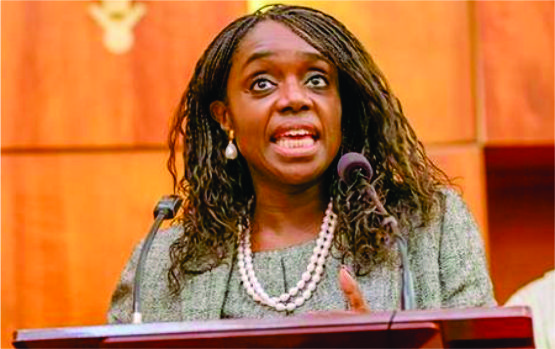Nigeria continued to languish in recession in the third quarter, as its economy shrank 2.24 per cent compared to the same three months in 2015.
This was a further deterioration on the 2.06 per cent contraction in the second quarter, which marked the official start to the country’s first recession in more than two decades. GDP shrank 0.36 per cent in the first three months of the year.
Dr Yemi Kale of the Nigerian National Bureau of Statistics tweeted that oil output in the third quarter was 1.63m barrels a day compared to 2.17m in the same period last year. Stripping out the oil industry, GDP grew 0.03 per cent between July and September, he said.
Critics accuse the government of aggravating the country’s problems with accusations that it reacted too slowly to the crisis and that it has pursued policies that have deepened the turmoil.
The central bank’s decisions to restrict access to dollars for certain imports and not allow a flexible exchange rate for the naira have been blamed for stymieing businesses and investment, while pushing up prices of everything from fuel to rice and soap.
In the official market, the naira is trading below N300 to the dollar, having lost more than 40 per cent of its value since its peg was lifted in June, but on the black market the currency is far weaker — it has been trading at below N400 to the dollar this week.
The central bank increased the main interest rate by 200 basis points last month in an attempt to combat inflation, but it rose for the ninth consecutive month in July.
Razia Khan, chief Africa economist at Standard Chartered, said she expected a further rate increase at the next monetary policy meeting in September.
She said the weakness of the naira had boosted the government’s ability to make its payments to state administrations.
“Implementation of the budget will also help,” Ms Khan added. “The question is whether these factors alone will drive sufficient momentum for a recovery in the second half of the year. With banks unlikely to be driving lending growth much higher, recovery could be more drawn out.”

 Entertainment6 days ago
Entertainment6 days ago
 Health1 week ago
Health1 week ago
 Health4 days ago
Health4 days ago
 Football1 week ago
Football1 week ago
 Football1 week ago
Football1 week ago
 Crime5 days ago
Crime5 days ago
 Education6 days ago
Education6 days ago
 Health6 days ago
Health6 days ago

